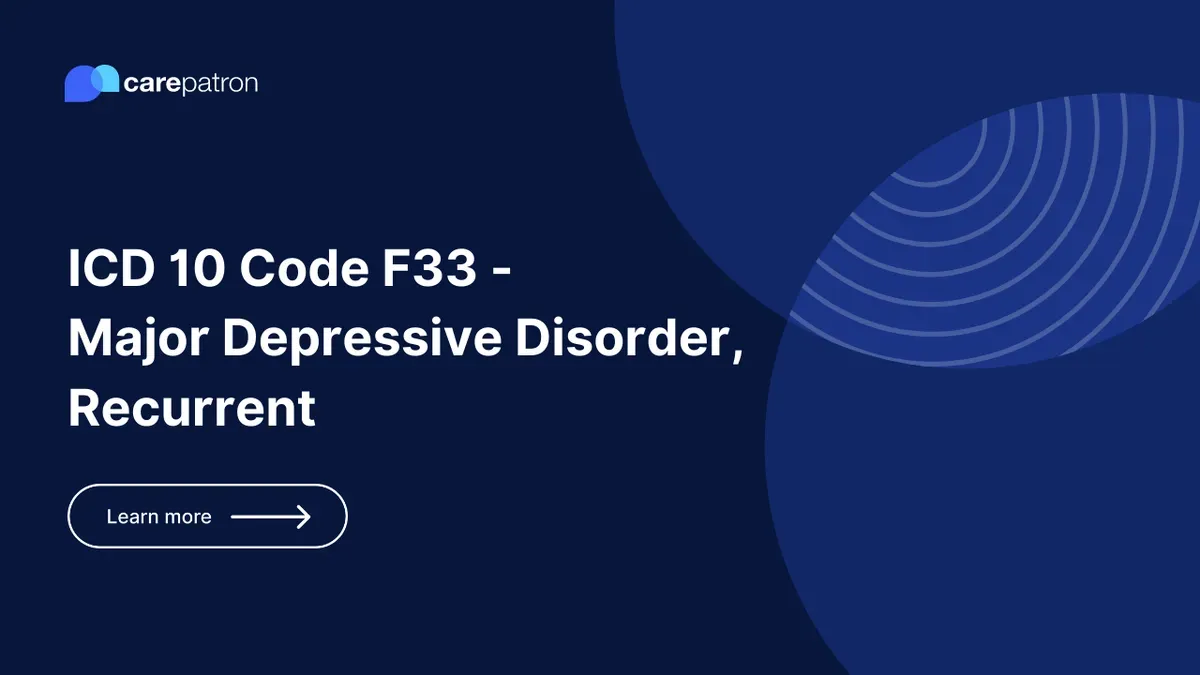
F33 – Major depressive disorder, recurrent
Explore the ICD-10-CM code F33 for major depressive disorder, recurrent. Learn about clinical descriptions, billability, related codes, synonyms, FAQs, & more.
Use Code
EHR and practice management software
Get started for free
*No credit card required
Free
$0/usd
Unlimited clients
Telehealth
1GB of storage
Client portal text
Automated billing and online payments
